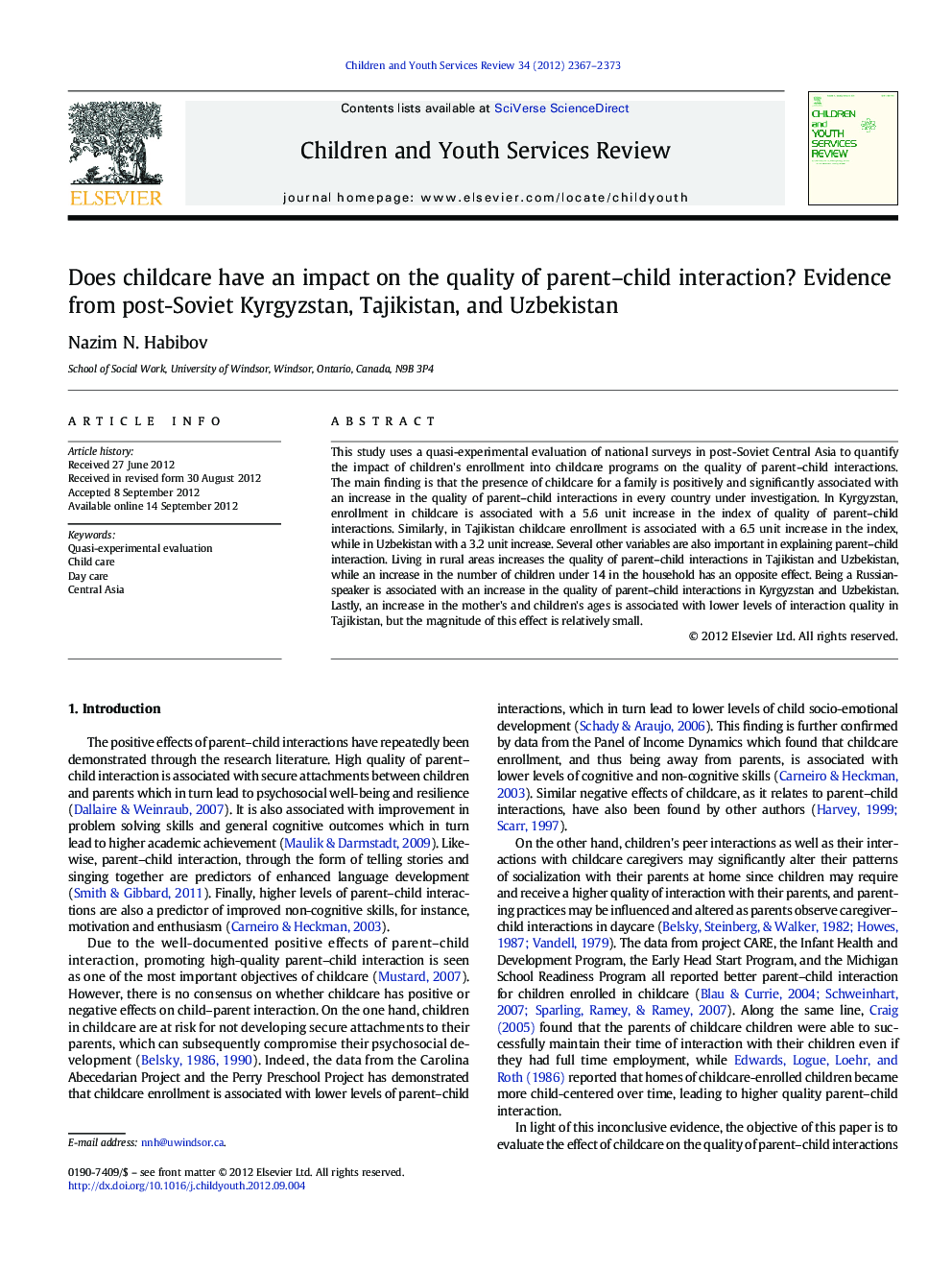| Article ID | Journal | Published Year | Pages | File Type |
|---|---|---|---|---|
| 346307 | Children and Youth Services Review | 2012 | 7 Pages |
This study uses a quasi-experimental evaluation of national surveys in post-Soviet Central Asia to quantify the impact of children's enrollment into childcare programs on the quality of parent–child interactions. The main finding is that the presence of childcare for a family is positively and significantly associated with an increase in the quality of parent–child interactions in every country under investigation. In Kyrgyzstan, enrollment in childcare is associated with a 5.6 unit increase in the index of quality of parent–child interactions. Similarly, in Tajikistan childcare enrollment is associated with a 6.5 unit increase in the index, while in Uzbekistan with a 3.2 unit increase. Several other variables are also important in explaining parent–child interaction. Living in rural areas increases the quality of parent–child interactions in Tajikistan and Uzbekistan, while an increase in the number of children under 14 in the household has an opposite effect. Being a Russian-speaker is associated with an increase in the quality of parent–child interactions in Kyrgyzstan and Uzbekistan. Lastly, an increase in the mother's and children's ages is associated with lower levels of interaction quality in Tajikistan, but the magnitude of this effect is relatively small.
► This study examines effect of childcare on quality of child–parent interaction. ► Childcare causes a 5.6 unit increase in quality in Kyrgyzstan. ► Childcare causes a 6.5 unit increase in quality in Tajikistan. ► Childcare causes a 3.2 unit increase in quality in Uzbekistan. ► Childcare enrollment in Central Asia should be promoted and encouraged
